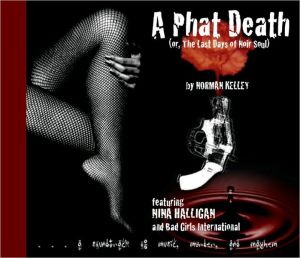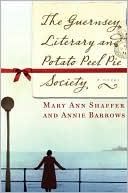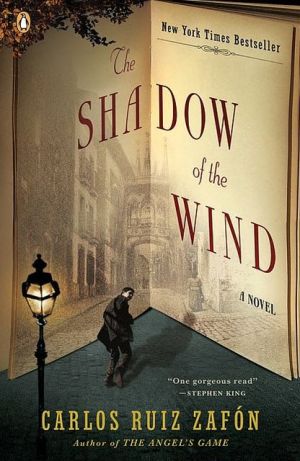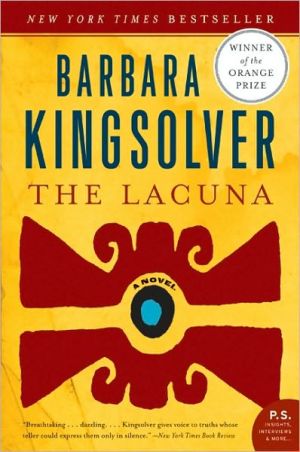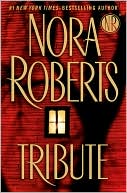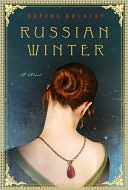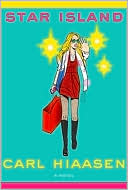A Phat Death: A Nina Halligan Mystery
"Want a scathing social and political satire? Look no further than Norman Kelley’s second effort featuring ‘bad girl’ African-American PI and part-time intellectual Nina Halligan—it’s a romp of a read . . ."—Publishers Weekly (starred review of The Big Mango, the previous Nina Halligan Mystery)\ A hit on a notorious hip-hop star plunges Nina into the vortex of a violent power struggle to control a valuable commodity in the recording industry, namely black music.\ Norman Kelley is the author...
Search in google:
Nina takes the music industry by storm—no music mogul or sinister rap star is left standing.Publishers WeeklyNina Halligan takes on the recording industry and black music in Norman Kelly's third outrageous caper (after 2000's The Big Mango) to feature the bad girl PI, A Phat Death: A Nina Halligan Mystery. Once again outspoken social criticism fires the nonstop action. The format, which resembles a CD jewel box (chapters are "tracks"), is particularly distinctive. Copyright 2003 Reed Business Information.
A Phat Death\ A Nina Halligan Mystery \ \ By Norman Kelley \ Akashic Books\ ISBN: 1-888451-48-3 \ \ \ \ Chapter One\ Standing on the Verge of Getting It On \ When he slowly pulled down the zipper of my dress I knew I was ready for the okey-doke. I could feel his warm breath on the back of my neck; it was in sync with my breathing and that meant we were about to enjoy the rhythm of the one. Or, as the vulgarians would say, the Big Nasty.\ He peeled away the shoulder straps of the garment and it slid down to my waist. Delectably, I was being peeled like a grape. Moments before I had asked him what he wanted to hear, some Sassy or Betty Compton? I was looking through his music collection, my back turned to him, and when I said "Hmmm?" he slowly rose from the couch and stood behind me in his CD-infused and record-laden lair. The man had more records than Imelda Marcos had shoes - boxes and cartons of them.\ I could smell his natural odor mixed with cologne; it was a volatile scent that made me, uh, moist. Some men have a way of doing that to me. I call them "moist specialists."\ Slowly and lovingly, he turned me around and I gazed into his beautiful gray eyes. The man was gorgeous: dark-skinned; a very pleasant smile surrounded by a rich black, neatly trimmed beard. He had a full head of glorious dreadlocks that gave him a sort of mischievous, leonine countenance. He was dressed in a wheat-colored linen suit, confirming my universal opinion that there was nothing finer - Nothing! - than a good-looking nigga in a light-colored or white suit. Olódùmarè's choice selection. In his right earlobe he wore a gold stud.\ Uh-huh. Dat t'ing. Dat t'iiiing.\ When my cousin Maxine introduced us he took my hand and kissed it. My reputation had preceded me, and he knew how to work his magic. Now, he was slowly unfastening the front of my brassiere. My girls tumbled out as he slipped the bra straps from my shoulders. I moved away from the wall unit that housed the stereo component and let the bra and the dress slide to the wooden floor. At that moment I had on nothing but my thong, my last line of defense before surrender. I was willing to let him take command.\ Willingly, without a hint of hesitation, he began around my neck with kisses and just as I thought he was moving down to my shoulders and the girls, his tongue glided back up and into my ear. Then the okey-doke went into full force. Zamzow!\ He inserted a leg between my thighs and he was holding on to my waist as his lips began their slow descent to my breasts. He licked one then the other and took a nipple into his mouth. Things were beginning to heat up in my southern valley as he continued sucking and licking. I worked a hand over to his crotch and felt his malethang throbbing through his linen trousers. He was a hungry fellow. I also knew how to work a zipper. It's one of those basic skills your parents teach you, though not necessarily intended for the present situation.\ My red-tipped fingernails went into his trousers and grasped his lion of Judah. The brother moaned and now it was questionable as to who was in control of the negotiations. I could tell that he liked the hand job, for his hand went over to my arms and began stroking and kneading my muscles. Our gazes locked in a fit of passion.\ Boing.\ "Nina-" he breathed. I was about to make him pop, but he did something with his abdomen and checked his flow. Ever the gentleman, a rare thing with men these days, black or white, he gently lifted my hand from his erogenous center and began kissing my fingers. Soon I found his other fingers working the cloth that covered my hot spot and I was becoming more than hot and bothered. I was beginning to tingle. I did the James Brown thing - I broke out in a cold sweat - and inquired about a condom.\ "Unnnhh," I breathed, and wrapped my arms around his neck as he began furiously working his hands through the mound and between my legs. I was holding onto him as if he were the Father, the Son, and the Holy Ghost. At some point it all became a blur of sensations. I was clutching onto him, lasciviously bucking my hips, my tush rocking back and forth, biting his ear and telling him that he could do all sorts of things to other parts of my body, my soul, my heart, and my mind. That got him humming as I hoped it would. After all, this was about sex, and it's a mutual endeavor in my scheme of things.\ The man lifted me up by my waist and guided me onto the lion. I came down on his upstroke. To keep his balance he widened his stance and I deliriously rode him, biting his lips and pulling on his beard with my teeth. It was all too much. He held onto my waist, my legs locked around his. I let go of him and slowly arched myself downward, bending over backward, my braids sweeping the floor. I was viewing his living room from upside down as he was tearing into me with such majestic force.\ Oh, yeeaaahh ... Uh-huh ...\ I must've peaked about three times in less than a minute. I was confused, lost but also sure of one thing: I wanted more. Give it to me. The man wasn't going to let me leave that night, and I was sure of that when he came inside me. Sex, like the law, is nine-tenths possession. After my pleasure trip I rose into a normal position, my legs still wrapped around his waist, my valley's muscle clenching him into place. I would have continued showering his face with kisses, feverishly licking it, but he gently lifted me onto his shoulder and carried me over to his bed in his musically cramped quarters. Talk about door-to-door service.\ As he pulled off his clothes - now he was "nigga buffed," gorgeously cut and muscularly accented - I pulled the phone's cord from the socket and then guided him down onto the bed. I immediately wanted him between my lips, and knowing where his malethang had been only excited me more.\ "And then what happened?" asked Zee. She pulled the towel up around her breasts as the sweat poured down her neck and onto her shoulders, her black skin glistening.\ "What do you mean, 'What happened?'" asked Anna, leaning back into Esperanza, who had her hair tied up in a bun to keep it out of her face. "Zee, does she have to spell out the whole thing?"\ "It's graphic enough." Esperanza smiled. She held onto Anna.\ "She knows," said Magdalena, who had entered the sauna with another tray of glasses filled with champagne. Magdalena placed the tray down and stuck her finger in her mouth and pulled at her cheek, making a loud popping sound. "Nina popped him! Right, doña?" Her towel almost slid off.\ I only winked as she handed me another glass of champagne. I held up my finger and looked at the wedding band.\ We - Zee, Magdalena, Anna, Esperanza, and myself - were having a Bad Girls International celebration of my marriage to Glen Sierra in the sauna of the hotel where Magdalena VillaRosa, the ambassador of the Republic of Dechoukaj, formerly Misericordia, stayed. It was a shower of sorts.\ These were the women I had bonded with over the past few years. They have become my best friends and my sisters, my family, and they wanted to have a big to-do about my marriage to Glen. We, Glen and I, didn't have a real marriage ceremony, the church stuff. After seeing each other for two months we were married at the city's municipal hall by my godfather, Judge Phillip March.\ Things happened so quickly. I met Glen at a party that was given by Groove World Music and the CEO of the firm, my cousin Maxine Devereaux. Max invited me to the party because I was responsible for introducing her to Veronica Thorn Martin, who had taken over Paul Tower's Black Christian Network (BCN) after he had been exposed and deposed by yours truly.\ Veronica had come a long way in the last few years since she assumed the reins of BCN and the Malik Martin Foundation. At first she didn't know what to do with BCN, but then she caught the downsize fever of corporate America and decided on a whole lotta headrollin'. Boom! She fired the entire executive staff and then sold BCN's television and radio stations to another concern, Groove City Records, the only black independent record company standing, meaning it distributed its own records. That turned "the Groove," as it was called by the public, into Groove World Music (GWM), a competitive world-class media organization that was going to compete with the big five record firms that controlled the world's manufacturing, marketing, and distribution of music recording, a.k.a., the "Five Fingers of Music." And the Devereaux, owners of GWM (relatives on my mother's side), never forgot who allowed them to make the leap - Veronica Thorn Martin and me. She was asked to serve on the board of the new and improved Groove.\ I'd handled the legal work for the foundation and Leon Devereaux, the chairman of the board and former ambassador to Nigeria, also my uncle, was grateful for an opportunity that would make the Groove the leading black multimedia company. With Maxine at the helm and a set of ambitious ideas in her head and underneath her arms, she had announced that the Groove was back and it was going to be in Harlem. She and her father were determined to return Harlem to its glory days. They had constructed a postmodern "Afrotextured" building to house the GWM office and the Devereaux Museum of African-American Music. That was Uncle Leon's pet project. Anyway, I was invited to the gala celebration along with many others, one of whom was this delicious-looking man.\ I had known of Glen Sierra from my uncle Phil, whom I sometimes refer to as Teo. Teo was part of the troika of civil rights and labor activists that included my father and my late husband's adopted father, the great West Indian activist and theoretician Raymond Belmont. Teo regularly played bass downtown in a jazz band and Glen, a saxophonist, sat in. But there was another Glen Sierra that I had also heard about on the music grapevine: the troublemaker. Glen was a maverick in the music business: he hated the record companies' exploitation of musicians and black music; he detested how some musicians were trying to create a jazz canon, trying to block off musicians in so-called genres, trying to stop hip-hoppers from experimenting with jazz and jazz musicians from experimenting with hip-hop. He didn't like how hip-hop had degenerated into a morass of gangstaism and how everyone was just concerned about "getting paid," but praising God on every demented record about "bitches and ho's." No one was laying down a foundation for decolonizing black music. Except maybe the Groove.\ The man had a brain and could do the do as well: a heady attraction for any intelligent woman. His views more or less put him into conflict and opposition with the music powers-that-be: the clubs, record companies, jazz purists, some hip-hoppers, and the jazzerati, headed by music critic Clemon Grouse and the overrated trumpeter Hugo Baron. But Glen was as ambitious as Maxine; he could write. So he started an underground music magazine that floundered but got him noticed by some of the more established magazines because he had a good critical eye. He had carved out a niche for himself, garnering a reputation for being an aggressive investigative journalist in black culture and politics, particularly in the realm of how the music business operated.\ He uncovered the dirty deals and examined how even some black record executives at both black- and white-owned firms were complicit in exploiting African-American artists. Glen named names and that got him, uh, whitelisted.\ So he was independent - a trait I admire in any man or woman - and had established his own record label, KS&P StudioWorks, and that was now being considered for a deal by GWM. He was still writing articles about how black culture had become a cash cow for predatory marketers and how certain blacks were doing nothing for those being colonized by the five fingers that effectively controlled music. At the gala we had gotten into a conversation about an article of his on how the music industry got Congress to pass legislation prohibiting musicians from using the bankruptcy laws to get out of onerous record contracts - citing TLC and Toni Braxton. Of course, Congress wasn't going to scrutinize how the record industry had been ripping off black artists. After all, blacks are "special interest" and don't deserve special treatment.\ "Nobody wanted to publish it," he said as we stood in a cozy corner, with drinks in our hands. Colorfully dressed people of color - red, black, green, and gold - were swirling before us as the various bands on the Groove's labels mounted the stage and did minisets.\ "Why not?"\ "I named names." He smiled, a twinkle in his gray eyes. "Did you know there's a suit going on that's accusing the big five and others of racketeering?"\ I arched an eyebrow. "Under the RICO statutes?" I asked as my body moved closer to his.\ "Yes." He then looked at me more closely. "You know about RICO?"\ I nodded and rattled off an explanation of the racketeering and corruption act that the feds used to bust the Mafia and that civilians could use against individuals and organizations if they could prove a pattern of criminal activity. I had used it in Brooklyn against some drug gangs and upscale white-collar criminals.\ "Are you a lawyer?"\ "I have been known to practice the profession," I confessed.\ "Anyway, I had to get the article published in a socialist magazine, because my usual venues were afraid of losing advertising support," he said somewhat bitterly. "Even the newspapers and magazines are being eaten up by large corporations."\ As a joke I said, "Then you must have tried some of our courageous and cutting-edge black magazines such as Black Finance and Converge."\ He chortled. We both agreed that black publications primarily weren't telling any thinking person what he or she didn't already know. They were so pro-black that they weren't really critical or investigatory about anything of substance. Most of them were so chock-full of killer liquor and tobacco ads that they were compromised beyond redemption.\ Glen sighed and looked around. "This is the last chance."\ "For what?" I inquired.\ "If the Groove doesn't get up and battle the big boys, it doesn't look too good for black music," he said, peering around the huge and spacious atrium of the museum where the gala was being held. "If black folks can't control our music, which comes from our own labor, then we will never get it together."\ I knew I liked him at that very moment. His statement reminded me of my late husband's view of the convergence of politics, economics, and culture. This guy was thinking and that is something that, in my opinion, black folks just don't put much stock in. Nowadays it's all about getting paid. You say anything that's critical and you're accused of "tearing things down." It was the exact reason that Lee, my late husband, was so unpopular when he was alive. Now that he's gone people can't stop buying his books. It must be the smell of blood.\ "Ever read an article called 'Rhythm Is Our Business' by Dr.\ \ Continues...\ \ \ \ Excerpted from A Phat Death by Norman Kelley Excerpted by permission.\ All rights reserved. No part of this excerpt may be reproduced or reprinted without permission in writing from the publisher.\ Excerpts are provided by Dial-A-Book Inc. solely for the personal use of visitors to this web site. \ \
\ Publishers WeeklyNina Halligan takes on the recording industry and black music in Norman Kelly's third outrageous caper (after 2000's The Big Mango) to feature the bad girl PI, A Phat Death: A Nina Halligan Mystery. Once again outspoken social criticism fires the nonstop action. The format, which resembles a CD jewel box (chapters are "tracks"), is particularly distinctive. Copyright 2003 Reed Business Information.\ \ \ \ \ Library JournalNina Halligan and her curious troupe of International Bad Girls return for a third installment in this series (after Black Heat and The Big Mango). Recovered from the recent deaths of her then-husband and children, Nina has married musician/writer Glen Sierra. When a high-ranking player in the black music industry turns up dead, Glen's investigation of the incident quickly lands both him and Nina in the middle of a struggle over power in the hip-hop world. It's up to Nina and her odd group of friends-including a martial arts expert and a hermaphrodite-to save Glen, themselves, and the music. The pace and story are quite good, but the graphically depicted and regularly occurring sex scenes may put off some readers. They're meant to titillate, but unfortunately they often sound like nothing more than male fantasy. Still, Kelley has written a solid story that keeps readers interested. While not for all libraries, it is a good choice where African American mysteries are popular.-Craig Shufelt, Lane P.L., Oxford, OH Copyright 2003 Reed Business Information.\ \
